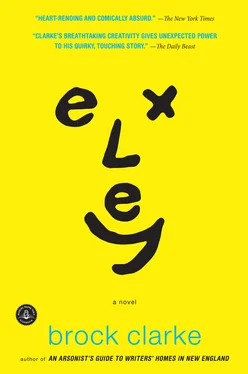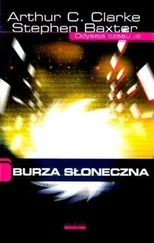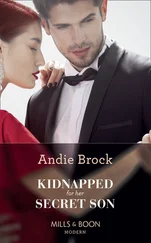“Pop quiz,” my dad announced. “Take out a pencil and a piece of paper.” Everyone groaned. Here was another of school’s many disappointments. My classmates had hoped for a pervert, one honest-to-God child molester, and all they got was another teacher . They got out their pencils and pieces of paper. So did I. My dad stood up and went to the chalkboard and wrote:
What are the Giants? Are they my:
(a) Delight
(b) Folly
(c) Anodyne
(d) All of the above
There was a lot of muttering about this in the class, and I could hear L. say, “So whatever an anodyne is.” But I knew. I wrote, “The Giants are (d) All of the above,” and then got up and handed the piece of paper to my dad. I smiled at him, and he nodded. Because I understood now what he was doing there in my classroom. My dad was giving me a present. It was my ninth birthday, and this was my birthday test. I got an A.
Brookside Cemetery
Before I went to bed, I had this not-so-profound thought: I’m nine now, but when I wake up I’ll be ten . Your brain lets you think these things only so you’ll know how very tired you really are. So I went to bed. I slept so deeply that when I woke up, I felt like someone had hit me with something. So I did what you do when you wake up from a sleep like that: I tried to remember what had happened before I fell asleep. There was Exley showing up at my door. There was Mother’s speech and her spotting me at it with Exley. There was Harold hitting me in the mouth. There was Exley drunk. And there was Yardley. I remembered talking with Yardley on the phone: how I’d convinced him that Exley was Exley and then told him where Exley lived before I’d hung up on him.
“No, no, no,” I said. I got out of bed. The clock said it was quarter of eight; Mother would be at work already. I’d slept in my clothes, but I didn’t have time to change into new ones. I didn’t even have time to brush my teeth. I got on my bike and rode down to Exley’s apartment. He was awake, lying on the davenport, reading a book, smoking a cigarette. The lights were on, and the apartment was much more together than it had been the night before: the empty vodka bottles were on the desk, not on the floor, and Exley’s book was on the desk, too; the chair was turned upright and so was the davenport, obviously, because Exley was lying on it. The only thing that seemed out of place was a shovel, leaning against the far end of the couch, its blade caked in dirt. But I didn’t have time just then to wonder what it was doing there.
“Where are your parents buried?” I asked Exley.
“In the ground,” Exley said.
“This is serious,” I said. I started telling him about Yardley and his book. I figured Exley had been too drunk last night to remember any of it. But Exley held up the book he was reading — it was Yardley’s — to show me he remembered, and then twirled his finger to tell me to get on with the story.
“Yardley is coming,” I said. “He knows where you live. He could be here any minute.” Exley nodded at this bit of news; he took a cigarette out of his pack, lit it off the end of the one he’d been smoking, licked his finger, put out the finished butt, flicked it at me, and then went back to reading the book.
“How can you just lie there?” I said.
“‘In a land where movement is a virtue,’” he said, “‘where the echo of heels clacking rapidly on the pavement is inordinately blest, it is a grand, defiant, and edifying gesture to lie down.’”
Just then there was a knock on the door. Exley looked at me, stuffed the book between the davenport cushions, shoved the shovel underneath the davenport, raised his eyebrows, then got up, turned off the light on his desk and the overhead light, and went to the bathroom, closing the door behind him. There was another knock. I didn’t see that I had any choice but to answer it. I went over and opened the door. Yardley was standing there. He was wearing a blue V-neck sweater and a black turtleneck underneath and green corduroy pants and a jacket that might have been a trench coat if it had been longer. He was bald on top and gray on the sides. His eyes were red, and there were dark circles under them. I knew from his author photo that he didn’t normally look like this. It was only eight o’clock in the morning. He must have driven all night to get to Watertown that early.
He didn’t say anything to me; I didn’t say anything to him. I moved to the side, and Yardley walked into the apartment. The first things he saw were the vodka bottles and the copy of A Fan’s Notes on Exley’s desk. He walked over and studied them closely, like they, and he, were in a museum.
“Tempting,” Yardley said. His back was to me. “‘Tempting, but the evidence just isn’t there.’” He squinted at the photos and got even closer to them. “Why is it so dark in here?” he asked.
“Because of ‘that long malaise, my life,’” Exley said from behind the closed bathroom door. Poor Yardley. He was so scared I thought for a second he was going to pull his head back inside his turtleneck. Like a turtle. It was weird, I thought, how accurate these words and sayings end up being. Exley opened the bathroom door. To Yardley, Exley must have been like Lazarus, coming out of the bathroom, holding a copy of A Fan’s Notes , and smoking a Pall Mall. “Hiya, gang,” Exley said. He looked at Yardley, but not in the eye. More like in the chin or neck. Just like Yardley had described in his book. Then Exley flopped down on the couch again and started reading, or pretending to.
“‘So now the curtains part.,’” Yardley started to say.
“‘. and Frederick Earl Exley moves into the only place he ever wanted to be.,’” Exley said to his book.
“‘. the limelight, the starring role, the absolute and unchallenged center of attention,’” Yardley finished. Almost everything Yardley had said up until now, and almost everything he would say hereafter, was a direct quote from his book. But hearing Exley quote from the book, too, seemed to do something good to Yardley. He looked less tired now. His eyes were bright and smiley, although his mouth was still pinched and grim. “You read my book,” he said. He sounded astonished.
“‘He was a great big baby who never grew up,’” Exley said. You could hear the angry quotation marks in his voice. Exley looked away from A Fan’s Notes now, sat up, and glared at Yardley. His eyes were big and round. They did look like a baby’s eyes, but mean, too, somehow. Yardley backed up a step, then another, and another, until Exley lay back down on the couch. Yardley had backed up so far that now I was between him and Exley. I turned around and said, “Hello, I’m Miller. We spoke on the phone.” But Yardley was still looking at Exley, over my shoulder. “‘What drove him to his mother’s davenport?’” Yardley whispered. “‘What was it — the “wound,” the “rage”—that rendered him helpless in the conventional world, that isolated him in a universe of his own?’” Yardley then took another step closer. He was even with me now. He smelled like coffee and wet corduroy. “But then again,” Yardley said, not whispering now, “to paraphrase something he once said about himself, he did like to have a drink now and then, cherish his friendships, and he loved to occasionally talk on the phone with his pals.” He turned to me now. As far as I could tell, it was the first time he became aware that I was a human being in the room and not just a piece of furniture. “‘Contradiction was, or should have been, his middle name,’” Yardley said to me.
“Well, it’s not,” I said. “His middle name is Earl. That was his father’s name, you know.”
Читать дальше












